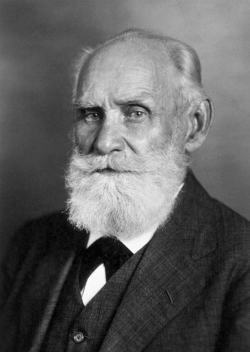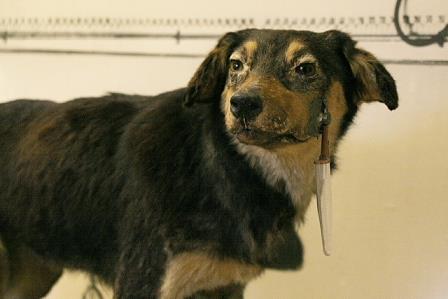Ivan Pavlov

- Born
- 27 September 1849
- Died
- 27 February 1936 (age 86)
Ivan Pavlov was an iconic figure of 20th century science and culture. He is best known for his work in learning and behaviourism in which he conditioned dogs to associate feeding with the sound of a bell. Pavlov observed that the dogs would salivate in response to the cue, meaning that this reflex had become conditioned.
Ivan Pavlov was born in Ryazan, an industrial city in western Russia. His father was a priest, and from an early age Pavlov was encourage to follow this spiritual career. However, inspired by progressive thinkers of the day, Pavlov abandoned religion and instead decided to devote his life to science. There is some confusion about Pavlov's date of birth - many list 14th September, 1849 as the correct date. However, Russia at the time was using the Julian calendar, which was 13 days behind the Gregorian calendar (now used widely throughout the world as the norm) and as such correcting for this difference his birthday in the current calendar is 27th September.
During his early career, Pavlov pursued his passion for physiology and in 1890 Pavlov was appointed as director of the Department of Physiology at the Institute of Experimental Medicine in St. Petersburg. In the decade that followed, Pavlov demonstrated the fundamental role of the nervous system in the digestive process, a discovery that forms the basis of modern digestive physiology and which earned him a Nobel Prize in Physiology or Medicine in 1904.
 While studying salivation in dogs as part of his work on digestive physiology, Pavlov observed and documented the phenomenon of conditioned reflexes – reflexes that are learned behaviour. He observed that dogs salivate when they see food, an 'unconditioned reflex'. In his now famous experiment, Pavlov would ring a bell every time he offered the dog some food. Normally, ringing a bell would not initiate a digestive reflex. But over time, the dog came to associate the bell with the food and would still salivate if the bell was rung in the absence of any food.
While studying salivation in dogs as part of his work on digestive physiology, Pavlov observed and documented the phenomenon of conditioned reflexes – reflexes that are learned behaviour. He observed that dogs salivate when they see food, an 'unconditioned reflex'. In his now famous experiment, Pavlov would ring a bell every time he offered the dog some food. Normally, ringing a bell would not initiate a digestive reflex. But over time, the dog came to associate the bell with the food and would still salivate if the bell was rung in the absence of any food.
This was the first systematic study of conditioning behaviour and associative learning. Pavlov’s academic acclaim extended beyond his Nobel Prize: in 1907 he was elected Academian of the Russian Academy of Sciences, in 1912 he was awarded an honorary doctorate at Cambridge University and an Order of the Legion of Honour followed in 1915.
Do not become a mere recorder of facts, but try and penetrate the mystery of their origin.
Ivan Pavlov
As Pavlov’s career hit new heights, the Soviet Union became a significant epicentre of physiological discovery, no doubt aided by the significant funding that Pavlov and his colleagues received from the Soviet Government.
Pavlov held his position at the Institute of Experimental Medicine until his death in 1936, leaving behind a considerable legacy of scientific endeavour and inspiring a host of eminent scientists.



